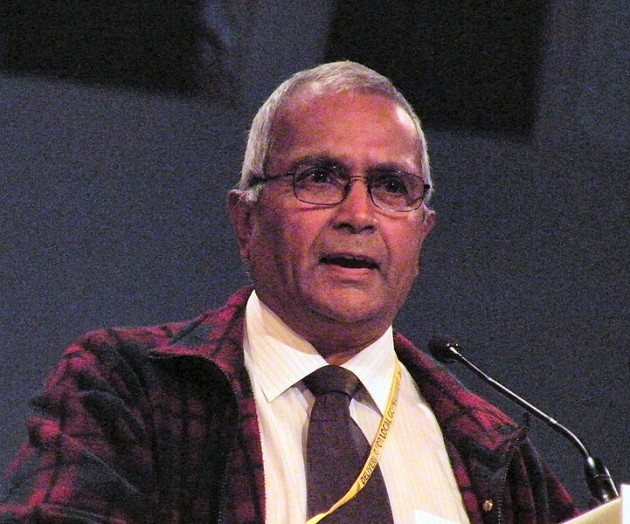Lord Dholakia had the privilege of speaking in the debate on the first King’s Speech of Charles III’s reign. Speaking during the Humble Address on Home Affairs, Justice and Devolution, Lord Dholakia focussed on the criminal justice system. Reminding the House of the 2020 promised royal commission, Lord Dholakia noted the ‘piecemeal approach to legislation’ in criminal justice and that the commission had been ‘kicked into the long grass’.
Disappointed with the haphazard approach to significant lawmaking, Lord Dholakia underlined the pressures facing the prison estate in this country. Citing current figures on the number of prisoners and our far greater use of imprisonment than many of our European counterparts, Lord Dholakia stated the high number of ‘nearly 86,000’ citizens currently in prison, adding that it is ‘projected to increase to over 98,000 in 2026’. Continuing, he emphasised, ‘we have 132 people in prison for every 100,000 people in our general population compared to 100 in France and 70 in Germany. Driving his point home, Lord Dholakia said pithily, ‘the British people are not twice as criminal as the German people, yet our sentencing is twice as punitive’.
Further drawing attention to many of the issues that continue to plague the criminal justice system, Lord Dholakia reiterated figures relating to the number of short sentences handed out to prisoners in the ’12 month to June 2021′ of ‘40%’. Well understood to cause lasting problems for prisoners due to being ‘far too short for any serious rehabilitative work to take place’, whilst, ‘they result in offenders losing jobs and accommodation’, these two aspects time and time again ‘increase[d] rather than reduces the likelihood of reoffending’, Lord Dholakia stated.
Highlighting the ‘significantly lower reoffending rate’ of community sentences, that has ‘more than halved in the last decade’, Lord Dholakia was keen to point out how ‘[t]he average prison sentence of an indictable offence in now 56 months’; something he emphasised was, ‘nearly two years longer than in 2008, when it was around 32 months’.
Adding to these issues, Lord Dholakia stressed how ‘numerous research studies have shown that offenders from minority-ethnic groups are disproportionately likely to receive custodial sentences’. Shockingly, figures from 2017 ‘ indicated that black people were over 50% more likely to be sent to prison for an indictable offence at the Crown Court’. This was ‘even when higher “not guilty” plea rates were factored into this formula’. Unsurprisingly, figures showing if the numbers of minority-ethnic people reflected the composition of the county as a whole, there would be ‘9,000 fewer people in prison – the equivalent of 12 average-sized prisons’.
Highlighting the numbers of ‘assaults, deaths and self-harm’ in prison being at an all-time high, Lord Dholakia described the suggested empowerment of the Secretary of State to permit overruling the Parole Board, in certain circumstances, as an ‘astonishing proposal’. As a judicial body, making judicial decisions, Lord Dholakia opined, this ‘would line us up with dictatorships’, akin to overriding the rule of law. Noting the ‘proportion of prisoners released on parole who commit a further serious offence is less than 0.5%’, Lord Dholakia pointed out, ‘[n]o system based on human judgement could produce a significantly better result’.
Urging the government to ‘take steps to increase the use of community sentences’ and reduce reoffending, instead of measures to expand the prison system, Lord Dholakia lamented the recent previous Home Secretary’s pronouncement that homeless people living on the streets were making a ‘lifestyle choice’. Stating pointedly, ‘[t]hey are there because they have no other options left’, he was unimpressed with measures that would, ‘reintroduce elements of the old Vagrancy Act’, which ‘are deeply disturbing’ and would just exacerbate the situation whilst increasing the prison population further. ‘Instead of devoting resources to expanding the prison system’, the government ‘should plough them into the prevention of crime, support for victims and the rehabilitation of offenders.’

Readers like you, make ESHADOOT work possible. We need your support to deliver quality and positive news about India and Indian diaspora - and to keep it open for everyone. Your support is essential to continue our efforts. Every contribution, however big or small, is so valuable for our future.












In my opinion, senior politicians of Indian origin hardly make a point on matters affecting their own community. Hindus aren’t in significant number of jail going people from ethnic minority. We know who they are. So why are likes of Lord Dholakia not heard saying g a word against those anti India MPs or take up issues on behalf of our community?